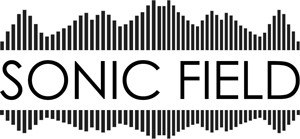Four corners of the night. VA
(Staaltape 2012)
“On n’a pas tous les jours de la neige en été” (Diabologum)
Pas vraiment une insomnie, plutôt des errances urbaines, au coeur de la nuit.
Rinus Van Alebeek, curateur chez Staaltape a demandé ici à cinq artistes, Kris Limbach, Rinus lui-même, Pierce Warnecke, Anton Mobin, et Konrad Korabiewski d’enregistrer la nuit la plus courte de l’année en 2011.
Chacun en leur lieu, en Allemagne à Berlin, en France à Paris et Montagny les Lanches et en Islande à Seydisfjördur.
Ces enregistrements ont ensuite été mis en commun, pour proposer au final des compositions sonores, regroupées sous la main de Rinus.
De ces lieux émerge une poésie constante, chaque approche conserve son style, le résultat au final donne une intranquillité surprenante, la bande analogique aidant bien les manipulations, renversements, retournements.
La première face fait la part belle aux fragments à des micro-compositions faites d’accidents, alternant des ambiances désolées et d’autres bruitistes (on reconnait bien là les compositions de Rinus), la deuxième face quant à elle présente deux créations, une commune de Kris Limbach et Pierce Warnecke et une d’Anton Mobin.
Il ressort de cette cassette une impression de souffle boréal, on oublie très vite la chaleur de cette nuit d’été, et c’est sans doute ici la réussite majeure de cet album, au mois de juin les éléments sont à l’hiver, à la grisaille, on cherchera en vain des subsistances d’une activité humaine, tout est comme engourdi. Et même si la neige n’est que celle d’un vieux poste cathodique demeuré allumé, les programmes sont terminés depuis longtemps, les objets ont pris le contrôle de notre monde endormi. A la fin de la bande il ne restera qu’à se dégourdir les doigts pour retourner la bande, lancer une autre face, une descente en pleine nuit par la face Nord,
C’est donc une réussite, mais j’apporterai un bémol cependant, ayant pu avoir accès à une partie des fichiers numériques originaux, je trouve dommageable que ceux-ci ne soient pas disponibles avec la cassette, car la duplication souffre ici d’une réduction du spectre, les morceaux étant très précis dans leur composition, ces derniers s’offrent pleinement dans de bonnes conditions d’écoute. Je sais que c’est peine perdue de demander cela au label Staaltape, un label résolument tourné vers la bande magnétique, son catalogue demeurera fixé sur ce support, mais je tiens néanmoins à faire entendre l’opinion d’un mélomane qui peut apprécier aussi bien l’objet cassette que le fichier numérique, l’un ne chassant pas l’autre selon mes usages.
-Flavien Gillié
[Rinus Van Alebeek, curator and manager of Staaltape. Photo courtesy of Emmiter Micro]
(Translation to English)
Not really an insomnia, rather some deep night prowling.
Rinus van Alebeek, Staaltape curator, proposed that five artists, Kris Limbach, Pierce Warnecke, Anton Mobin Konrad Korabiewski and himself, record the shortest night of summer 2011.
Each in it’s own place, in Berlin – Germany, in Paris and Montagny les Lanches – France and in Seydisfjördur – Iceland.
These recordings were finally assembled to give birth to sonic landscapes, under the wing of Rinus.
From each of these places emerges a constant poetry, each artist’s touch remains, and the final soundscape exhibits a surprising unquietness, analogical tape serving beautifully any manipulation, reversal or overturn.
First side is dominated by fragmented micro-compositions, with accidents, alternating desolated atmospheres or noisier ones (typical from Rinus compositions), second presents two creations, a common work from Kris Limbach and Pierce Warnecke, alongside one from Anton Mobin.
Out of this cassette blows a kind of boreal wind, one quickly lays aside the heat of some summer night, probably the major achievement of this album; in the midst of June, wintry and grey elements surround the listener, who will in vain look for traces of human activity, all is like eternally frozen. And even if the snow is only the one of some old radio left turned on, programs are over for a long time now, objects took control over our sleepy world. At the end of the tape, stretch your fingers and return the cassette for another ride on north face.
This work is then a success, although I’d nuance this enthusiasm: having accessed part of original digital files, I think it’s dterimental that these are not available with the cassette, because tape duplication induces a spectrum reduction, tracks being extremely precise in their composition, therefore being fully appreciated in excellent listening conditions. I know how useless it is to require this from Staaltape, a label radically dedicated to magnetic tapes, with an entirely on tape catalogue. Nonetheless, I think it’s important to hear the call from connoisseurs in music, who can as well appreciate the tape and associated digital files, without any exclusion.
-Flavien Gillié, translation by Sismophone



